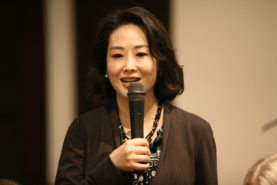A recent op-ed published in the New York Times, “The Increasing Significance of the Decline of Men,” explored changes in the role men play in the workforce as well as society. Interestingly, the conclusion indicated that family is the most important factor in defining a man’s sense of fulfillment and contribution to society.
From early childhood relationships or lack thereof with mothers and fathers, to personal decisions to marry and have children or not to, the article points to familial relationships as key indicators of a man’s success in life.
For example, the article cites David Geary, a professor of psychology at the University of Missouri: “Marriage typically reduces men’s aggressiveness and rule breaking and focuses them on family and engagement with the community.”
It also mentions Allan Schore, a professor of psychiatry and biobehavioral sciences at the U.C.L.A. School of Medicine, who argues the crucial role of an infant’s relationship with both mother and father in brain maturation that set the foundation for key skills like focus, adaptation and coping with stress, that enable men to be successful contributors to the job market and community.
The world is changing at a lightning pace.
The job market, both domestically and internationally, continues to transform. It is commonly repeated in staff rooms around the world that today’s elementary school students cannot anticipate their future jobs because they have not even been created yet.
Furthermore, shrinking boundaries, higher paced and unfiltered communication and information flow, and terrorism driven by identity-based conflict have shaken many of the foundations that both men and women used to count as certain factors for their identity and future ticket to success.

Chairwoman of GPW, Dr. Jun Sook Moon, addresses women leaders at the 2017 Global Peace Convention in Manila, Philippines
Yet, as often noted by Global Peace Education vice president Tony Devine, and reiterated by Harvard Analysist David Deming in his published findings, “The Growing Importance of Social Skills in the Labor Market,” success is no longer secured by measurable academic performance metrics. It is increasingly being recognized that non-academic character competencies such as social skills, personal attitude, and self-discipline are becoming critical indicators of future success.
And although education institutions can and should strive to transform to meet the demands of the ever-changing landscape of society and job-markets by striving to address character and creativity competencies in addition to academic accomplishment, as the previously mentioned study by Allan Schore seems to imply, perhaps the most effective and certain place to begin is in the family.
At the recent Global Peace Convention 2017 held in Manila, Philippines, Global Peace Women Chairwoman, Dr. Jun Sook Moon stated:
“The truth is, the family is the hub and model for all other social relationships…Peace begins in the home because it is where we learn to trust, respect, and work together with members of our human family. The warm and nurturing family environment that women create is the model for the peaceful world of One Family under God.”
It calls on both mothers and fathers and brothers and sisters, to rally around the family to raise ethical, confident, contributing and fulfilled men. The family is the first and best place to cultivate the intangible skill-sets of character and the knowledge and certainty of universal principles and shared values that will help both current and future citizens and members of the global workforce, both men and women, navigate through today’s uncertainty and define the still undefined landscape of our future.

